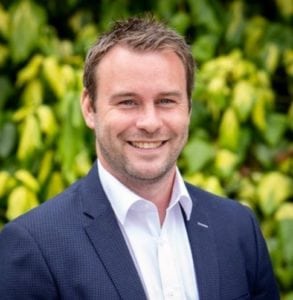 Declan O’Connell is a high-performance coach and corporate trainer. His areas of expertise include High-Performance Teams, Performance Under Pressure, Leadership Development and Career Management. He works with teams and individuals to heighten awareness, harness unique strengths, and ultimately support and facilitate a drive towards higher performance.
Declan O’Connell is a high-performance coach and corporate trainer. His areas of expertise include High-Performance Teams, Performance Under Pressure, Leadership Development and Career Management. He works with teams and individuals to heighten awareness, harness unique strengths, and ultimately support and facilitate a drive towards higher performance.
Declan’s philosophy is that there are no limits for improvement at everyone’s level of performance and he is passionate about supporting and challenging people to embrace that journey. Declan’s approach is grounded in a unique fusion of the latest research in Positive Psychology, Neuroscience and lessons from elite sport. This is derived from a 10-year career in corporate banking, a Masters degree in Positive Psychology & Coaching with a research interest in cognitive psychology and playing and coaching Gaelic Football at various inter county levels as well as numerous CPD visits to elite sports teams. He has a huge passion for taking on challenges and completed a trek to Mount Everest BaseCamp in November 2017. He is currently undertaking preparation for the Camino de Santiago trek in August 2018.
Can leadership be taught? If so, how?
Yes, it absolutely can – thankfully! Initially, observing and studying leaders whom you admire is a very worthwhile exercise. What qualities do they exude, how do they get people to connect with them, and why do you admire them over others? This should then invoke a period of reflection. Can you honestly evaluate your impact in certain scenarios and in different stakeholder relationships? How can these be improved upon to increase my effectiveness? What lessons can I learn from my role model that can be replicated? The rise of the authentic leadership movement seeks to embrace all the qualities which you uniquely possess, embrace your natural strengths, share your vulnerabilities, get in touch with your own humanity and truly connect with your people. A coach can help shine a light on these areas and act as an independent guide through your leadership journey.
What do you think is the difference between management and leadership?
I believe there is a fundamental difference between the two. Management is the art of efficiently and effectively dealing with resources. Management and a manager usually denotes a rank within the organisation, a position they are appointed to. Leadership then is the art of creating vision, inspiring unity and action through authentic actions. A leader can never appoint themselves a leader, it is not necessarily a rank, other people appoint you as a leader as a result of your actions. People have to follow a manager; people want to follow a leader.
The world around us is changing faster than at any time in human history and we need more leaders to emerge. How do we make this happen?
The concept of psychological safety within teams is very important in creating new leaders. Psychological safety is an environment where a person feels trusted and respected and is comfortable to take risks and air their views. Google has identified this as the key driver of high performance among teams. There is often a pressure or an expectation to get things right first time and as a result a low tolerance for risk-taking which inhibits personal growth. Therefore we need to focus on creating the right climate to foster, encourage and empower the next generation of leaders.
What is the one mistake you witness leaders making more frequently than others?
I think mistakes can be a good thing if coupled with effective reflection. Leadership is a journey of self-discovery after all and it starts with leading yourself effectively before leading others effectively. From the leaders I have worked with, the most common mistake I see is to deliberately create a gap between themselves and their people because they think this is a requirement of a senior role. A common misconception is that the leader needs to appear, powerful, inspirational and all-knowing. When working with leadership teams, I always encourage a show of vulnerability – its impossible to expect of yourself to have all the answers. Therefore to recognise that the We is always more capable than the Me.
What advice would you give to someone dealing with a high-pressure situation in their life or work?
To understand that you have to lead yourself before you can lead others. To lead through a crisis moment, you need to physically and emotionally be at your best. The question then becomes – can you develop a high-performance routine that allows you to perform at a consistently high level? Maybe these questions might help someone struggling with a high-pressure situation: –
• Are you eating the right foods and hydrating to allow your body and mind perform efficiently?
• Are you getting enough sleep to allow your body and mind recover and regenerate?
• Do you have an exercise regime to give you the fitness to allow you perform at your best consistently?
• Do you have a mindful routine – something that allows you to clear your mind and focus on the things you need to get done now thereby avoiding distraction and procrastination?
Integrating these high-performance habits ensures consistency of performance and therefore the concept of high pressure becomes notional.
What are a few resources (books, blogs, podcasts, courses etc) you would recommend to someone looking to gain insight into becoming a better leader?
Podcasts
Finding Mastery – Dr Michael Gervais
1% Better Podcast – Rob O’Donohue
Books
“The Score Takes Care of Itself” – Bill Walsh
“The Culture Code” – Daniel Coyle
“Primal Leadership” – Daniel Goleman
“Tribal Leadership” – Logan, King & Fischer-Wright
